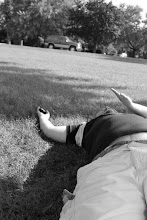I enjoyed it for the most part, but it left me a little cold for some reason. Then I read the A.V. Club's review which pretty much nailed the problem down. I bolded the end for emphasis.
Todd VanDerWerff: The pilot episode of Awake, airing tonight, is a great piece of televised art. The script is witty, warm, and soulful. The performances—particularly from lead Jason Isaacs—are delicate and almost perfect. David Slade’s direction conveys the emotional world of the show so well that you could watch it on mute and grasp most of what’s going on. In particular, Slade’s use of color—of reds and greens and blues, meant to boil the show’s complicated premise down into a visual aesthetic—is so wonderful that a whole article (or two) could be written about how he suggests places where realities overlap and intertwine, just through placement of a red scarf. At the end of the episode, you’ll leave feeling like you’ve seen something unique and wonderful, something worth watching every week in an increasingly crowded television landscape.
Then, next week, the show turns into a fairly standard cop drama with a twist.
Now obviously, I haven't seen this week's episode but I thought that even the pilot episode was too much of a "fairly standard cop drama with a twist." The concept of waking up in two disparate timelines is a fascinating, if not wholly original concept. But what got me so excited for the show was how deeply the trailer made it appear that the show would probe the emotional impact of this.
The trailer essentially has every emotional highpoint of the first episode cut closely together with a rather lovely song (it's called "To Build a Home," by the Cinematic Orchestra). The ending of the trailer is essentially the ending of the first episode and brings the whole concept of this splintered worlds' emotional impact on Detective Michael Britten's to a wonderful conclusion.
The rest of the episode, however? Pretty much a cop drama.
And this particular shortcoming of "Awake," got me thinking about larger trends in television and other arts…which got me thinking about "Lost," because how couldn't it?
I think "Lost" succeeded where other shows with high supernatural concepts have failed simply because of "Lost's" setting. The Island on "Lost" was crucially important not just to the show's ever-expanding mythology but also to the creative process of the show, itself.
The alien-ness of the tropical locale combined with the Damon Lindelof, J.J. Abrams and later Carlton Cuse's commitment to the weird and supernatural created an almost unique fictional environment. It was the kind of environment in which no cliché or stock shorelines could come readily available to the writer's minds. Sure, "Lost" featured it's share of cliché and stock elements like archetypical characters and the occasional descent into Nikki and Paulo diamond-stealing nonsense, but it was almost never based purely on setting because the writers had almost no other examples of setting to pull from.
If the "Lost" writers were running low on ideas about a show set on a supernatural Island, they had no other tired storylines from other shows about supernatural islands to pull from: no story about the Smoke Monster going through puberty or the polar bear accidentally smothering it's young. The problem with "Awake," however, is that Kyle Killen and his team of writers DO have the ability to pull from other ideas involving police officers floating around in the collective unconscious.
It's highly unlikely then that they will be able to pull off something that is equally satisfying as an exploration of death, apparent supernatural miracles and/or mental ailments while still never succumbing to the police procedural staleness.
Having said all that though…still give "Awake" a shot. The emotional points hinted at in the trailer resound strongly enough in the first episode to guarantee your devoted viewership for at least a few weeks. And if we're really nice to NBC they might let "Community" live to see season four.
